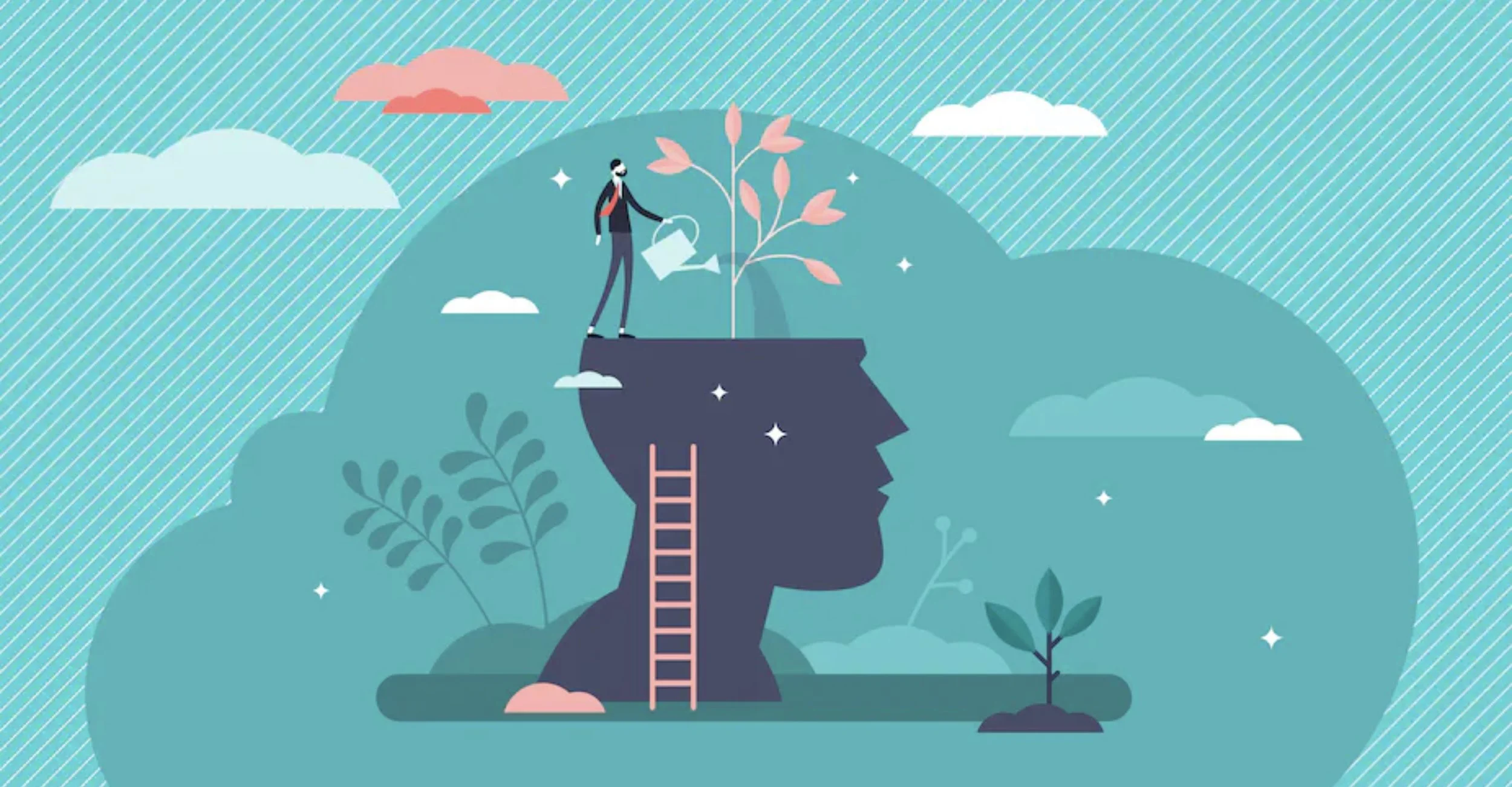Yoga and Mental Health
Trigger warning: this article contains mention of suicide.
There are many things in life that connect us human beings; our need for food and water, shelter from harsh environments, community and also our need to care for our mental health. How we do this though is unique to all of us.
My Story
My story with mental health I feel is not all that unique and honestly if it wasn’t for my brother I wonder where my interests for mental health would be. My twin Brother, Joshua suffered with major depressive disorder and anxiety for many years, arguably since childhood, and he tried everything. He reached out, was as open as he could be, tried exercise, tried therapy, tried medication, he even tried yoga and sadly he could not fight this battle forever and took his life is October, 2021. Why do I tell you this? Because I want his story to be known, in my eyes he didn’t lose, he tired and gave it everything he had for as long as he could, and because of all of his efforts he still succeeded to make incredible friendships that felt like family, travel and explore other countries alone, support others through their highs & lows and laugh hysterically at inappropriate jokes. He had a way of being aware he was being followed by the black dog and somehow still chose to love.
I know in my heart it is important to talk about these life events, to know they are real and happening every single day, and I know it is important to share our experience and our knowledge. So how does this relate to yoga?
The beauty of Yoga
Yoga has been around for more than 5000 years, that’s a lot of time and yet the same principles and philosophies are still present in the teachings today, not because they are rules just simply because they are understandable and still very much applicable to today’s world. They are there for each of us to embellish what resonates and leave the rest.
Statistic and Studies
Approximately 280 million people worldwide are currently suffering from depression¹ with depression being the leading cause of disability worldwide, the illness is horrendously isolating and effects the limbic region of the brain which consists of the hypothalamus (internal balance), the amygdala (flight or fight response), the thalamus (information relay station) and the hippocampus (learning and memory)². Depression and anxiety (affecting 264 million people³) also often results in numerous implications with various physiological systems including cardio vascular, nervous, gastrointestinal and immune systems⁴, so just know if you, yourself are battling an illness with such depth, you deserve and possibly need the support, and yoga can be a glorious knight in shining armour.
These mountains that you are carrying,
You were only supposed to climb
Najwa Zebian
Over the years there have been many studies⁵ conducted on the effects yoga has on mental health and almost all have shown significant statistical improvements and no studies have shown any negative effects. Most studies have been related to depression and anxiety, however it is important to mention Schizophrenia and Bipolar Disorder have been studied, although minimally, there have still been positive results⁶.
In one study conducted 25 ‘normal healthy volunteers’ were subjected to a 90 minute yoga class once or twice a week for just a month and the results were astonishing⁷. Both the young and senior participants showed a decrease in salivary amylase activity (sympathetic activity aka stress) immediately after class, as well as at the end of the month. They all also overall improved their mental health by the end of the month. In a review of studies it was also beautifully emphasised how yoga and mindfulness have shown improvements in cognition and function and overall highlights how yoga has ‘demonstrated significant benefit in reducing the severity of depressive symptoms’⁸. Interestingly as well Yoga studies have found promising evidence that yoga positively impacts brain health, many of the regions that depression and anxiety affect⁹.
I could list these findings and facts for a long long time however I’ll cap it there for now and besides, these findings are no surprise to the yoga community, fascinating to see on paper yes and I look forward to it being continually studied, but this knowledge has been known for millenniums by ancient yogis and the eastern world.
“Caminante, no, hay camino, se hace camino al andar
Traveler, there is no path, the path must be forged as you walk.”
What is the solution?
Although there is no one quick solution to any mental illness and in many cases there is no absolute solution, but I want to highlight how simply trying can help to bring about some of the most precious experiences life has to offer, as my Brother Josh had.
Yoga is multifaceted, there are many forms of yoga, and none have been proven to be better than others, because ultimately the goal is to unite the mind, body and soul, as cliche as that sounds.
Whether you are a physically fit individual, elderly, suffering from multiple illnesses, financially restrained, or living remotely, yoga is still available. Types of classes/resources available include:
In person classes,
Online YouTube Classes,
Online courses - more in-depth and usually longer classes,
Yoga Therapy - usually one on one sessions to form a practice that is completely personalised and suited to your needs and goals,
Apps - thousands to choose from, however my favourite is Insight Timer especially for meditation (free),
Books - audible is a wonderful option for allowing the body to rest and just enjoy the words,
Retreats - great for forming lifelong friendships, some are specially tailored for mental illnesses,
And so many more.
We are all connected
A great author and psychiatrist I look up to immensely is Daniel J Siegel, his work in mindfulness and understanding the depths of the mind is truly honourable and I feel I could not write an article on Mental Health without including some of his words. In his book ‘Pocket Guide to Interpersonal Neurobiology’ he states, “Science reveals clearly that our social world directly shapes how our neural firing unfolds”, meaning partly and simplistically that it is vital we put people in front us that are in part embracing qualities we wish and need in ourselves such as contentment, kindness, compassion and joy to combat our illnesses. strengthen new or developing neural pathways. A great example of someone who usually showcases these qualities are of course Yoga Teachers. It is not to say they or anyone are exempt from Mental Illnesses, just that in a class setting they are there for you and have devoted the time to the ancient Indian practice.
Final note
Overall, yoga can help bring us into a state of presence, and it is in these states where we can begin to get to know ourselves on a deeper level and to quote Daniel J Siegel again “no helpful communication can generally emerge from a reactive state” and “we can move from being passive recipients, to becoming empowered authors of our own life stories”.
I hope you found some use from this article, and I hope it instills in you the power you have to experience some of life’s most precious moments, the beauty in the mundane and the absolute magic that perspires in absolutely everything. I am so glad you are here, and know yoga is always available for you, always.
Good luck warriors.
Taylor xx
References:
World Health Organisation, 31 March 2023.
National Library of Medicine. Where in the Brain is Depression?
The Recovery Village. Facts and Statistics. May 26 2022.
Understanding Yoga Therapy by Marlysa Sullivan pg 129.
National Library of Medicine. The Efficacy of Yoga as a form of Treatment for Depression.
National Library of Medicine. Role of Yoga and Mindfulness in Severe Mental Illnesses: A narrative Review.
International Journal of Yoga. Effect of yoga on mental health: Comparative study between young and senior subjects in Japan.
National Library of Medicine. Role of Yoga and Mindfulness in Severe Mental Illnesses: A narrative Review.
National Library of Medicine. Yoga Effects on Brain Health: A Systemic Review of the Current Literature.




